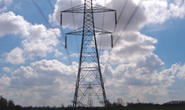Government dismisses "alarmist" reports of 70s-style blackouts
 The government has today hit back at accusations that the country is on the brink of power blackouts reminiscent of the 1970s, insisting that the UK energy system remains “one of the most resilient and responsive in the world”.
The government has today hit back at accusations that the country is on the brink of power blackouts reminiscent of the 1970s, insisting that the UK energy system remains “one of the most resilient and responsive in the world”.The Conservative Party highlighted official government figures that suggest demand for electricity could outstrip supply within eight years, leading to rolling blackouts in some areas.
The projections feature in an appendix to the government’s high-profile Low Carbon Transition Plan and warn that by 2017 there could be an energy supply shortfall of 3,000 megawatt hours a year – equivalent to the amount of energy used by the city of Nottingham each day.
It also warns that the situation is likely to worsen, predicting that by 2025 the shortfall could hit 7,000 megawatt hours a year.
Shadow energy secretary Greg Clark said the increased risk of blackouts was a result of the government’s failure to respond quickly enough to the planned closure of coal and nuclear power stations.
“Britain faces blackouts because the government has put its head in the sand about Britain’s energy policy for a decade,” he said. “Over the next 10 years we need to replace one third of our generating capacity but Labour has left it perilously late, and has been forced to admit it expects power cuts for the first time since the 1970s.”
He added that the government’s projections could also prove “optimistic”, arguing that they are based on the assumption that demand for energy will remain stable over the next 10 years and that increases in wind energy capacity will be delivered on schedule.
However, the Department of Energy and Climate Change dismissed the reports of blackouts as “alarmist” and accused the Conservatives of taking the projections used in the Low Carbon Transition Plan out of context.
“The reports say we will face a power shortfall by 2017, but that is simply not the case,” said a spokeswoman for the Department. “There is 18GW of capacity due to close by then, but over the next few years we have 20GW of capacity either under construction or in planning. We are projecting that by 2017 we will have capacity that will be at least seven per cent greater than that required at peak times.”
She said the official projections featured in the report equated to a marginal worsening of grid resilience, which could lead to power being off for a few minutes each year. She added that the government was currently consulting with the energy industry to address the issue.
James Murray, BusinessGreen
You can return to the main Market News page, or press the Back button on your browser.

